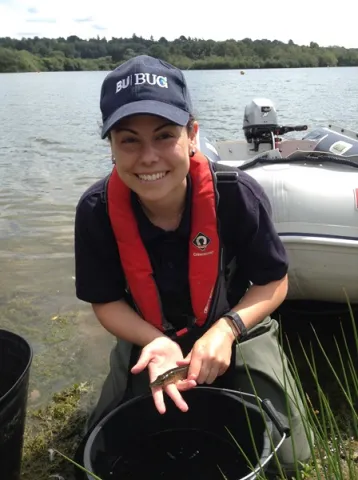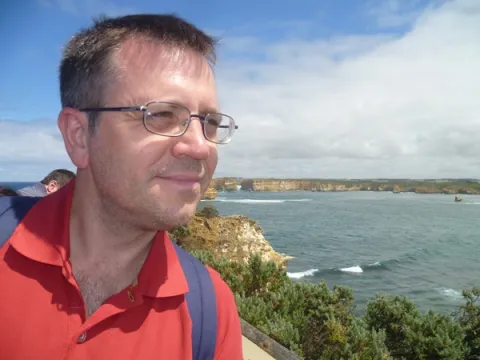Project overview
This project prioritises knowledge exchange with coastal communities and local organisations impacted by sargassum in the Mexican Caribbean by:
(1)
Field collaboration and data collection in Puerto Morelos (Mexico): partnering with the local private environmental organisation for Meteorological and Oceanographic Monitoring (SAMMO) to jointly design and conduct field experiments on sargassum sinking. SAMMO’s expertise will inform data collection on the buoyancy and sinking behaviour of sargassum. Field experiments by manipulating buoyancy through controlled tests and in-situ observations will be conducted by:
a)
damaging sargassum bladders (i.e. gas filled bubbles that help sargassum float) and investigating buoyancy in controlled environments (tanks) and the ocean;
b)
understanding the effect of fresh/rainwater on sargassum buoyancy in controlled environments and the ocean. Preliminary observations by SAMMO suggest that rain negatively affects sargassum buoyancy;
c)
conducting in situ pressure tests at 30m ocean depth to determine if sargassum becomes negatively buoyant with partial sinking, then sinking to depth.
Data collected will directly inform predictive models on optimal sinking depths and potential carbon capture impact, which for Sargassum buoyancy is currently lacking in literature (Putman & Hu, 2022).
(2)
Desk-based literature review by an Early Career Researcher (ECR): the ECR will perform a literature review to assess sargassum’s carbon sequestration potential and identify optimal conditions for long-term storage. This draws on empirical evidence about other seaweeds e.g. linking depth at which seaweed is sunk with how long carbon is sequestered, and identifying ideal areas for sequestration, such as oxygen depleted zones in the Atlantic (Paraguay-Delgado et al., 2020; Hu et al., 2021). This foundational research will support accurate, evidence-based recommendations during KE activities with SAMMO and the local governmental environmental organisation on Protected Areas (CONANP). Findings are shared in collaborative sessions to align scientific insights with local environmental strategies.
(3)
Educational outreach and community engagement in Puerto Morelos (Mexico): engagement with the secondary school ‘Técnica 7’ and its students through workshops and hands-on activities to build understanding of climate science and carbon sequestration, encouraging environmental awareness and potential career interest in marine science. These sessions will include simulations of buoyancy experiments to showcase our project, encouraging students to apply scientific principles and understand climate science through real-world applications.
(4)
Predictive modelling: the research team will develop a state-of-the-art spatially-explicit model to (i) predict optimal sinking depths and locations (i.e. mapping onto low oxygen zones in the Atlantic); (ii) quantify how much carbon can be sequestered across the tropical Atlantic through sargassum sinking and (iii) assess potential financial benefits from carbon credits linked to Exclusive Economic Zones (Gouvêa et al., 2020). Outcomes will be discussed with stakeholders to explore commercial applications while aligning with conservation objectives.
(1)
Field collaboration and data collection in Puerto Morelos (Mexico): partnering with the local private environmental organisation for Meteorological and Oceanographic Monitoring (SAMMO) to jointly design and conduct field experiments on sargassum sinking. SAMMO’s expertise will inform data collection on the buoyancy and sinking behaviour of sargassum. Field experiments by manipulating buoyancy through controlled tests and in-situ observations will be conducted by:
a)
damaging sargassum bladders (i.e. gas filled bubbles that help sargassum float) and investigating buoyancy in controlled environments (tanks) and the ocean;
b)
understanding the effect of fresh/rainwater on sargassum buoyancy in controlled environments and the ocean. Preliminary observations by SAMMO suggest that rain negatively affects sargassum buoyancy;
c)
conducting in situ pressure tests at 30m ocean depth to determine if sargassum becomes negatively buoyant with partial sinking, then sinking to depth.
Data collected will directly inform predictive models on optimal sinking depths and potential carbon capture impact, which for Sargassum buoyancy is currently lacking in literature (Putman & Hu, 2022).
(2)
Desk-based literature review by an Early Career Researcher (ECR): the ECR will perform a literature review to assess sargassum’s carbon sequestration potential and identify optimal conditions for long-term storage. This draws on empirical evidence about other seaweeds e.g. linking depth at which seaweed is sunk with how long carbon is sequestered, and identifying ideal areas for sequestration, such as oxygen depleted zones in the Atlantic (Paraguay-Delgado et al., 2020; Hu et al., 2021). This foundational research will support accurate, evidence-based recommendations during KE activities with SAMMO and the local governmental environmental organisation on Protected Areas (CONANP). Findings are shared in collaborative sessions to align scientific insights with local environmental strategies.
(3)
Educational outreach and community engagement in Puerto Morelos (Mexico): engagement with the secondary school ‘Técnica 7’ and its students through workshops and hands-on activities to build understanding of climate science and carbon sequestration, encouraging environmental awareness and potential career interest in marine science. These sessions will include simulations of buoyancy experiments to showcase our project, encouraging students to apply scientific principles and understand climate science through real-world applications.
(4)
Predictive modelling: the research team will develop a state-of-the-art spatially-explicit model to (i) predict optimal sinking depths and locations (i.e. mapping onto low oxygen zones in the Atlantic); (ii) quantify how much carbon can be sequestered across the tropical Atlantic through sargassum sinking and (iii) assess potential financial benefits from carbon credits linked to Exclusive Economic Zones (Gouvêa et al., 2020). Outcomes will be discussed with stakeholders to explore commercial applications while aligning with conservation objectives.

